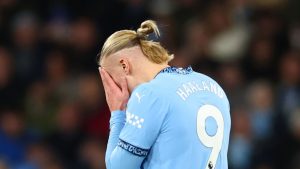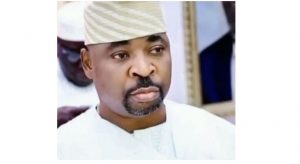College hoops corruption witness testifies in NC agents case


HILLSBOROUGH, N.C. (AP) — A cooperating witness from the federal corruption investigation into college basketball testified Wednesday against a former college football player charged with violating North Carolina’s sports agent laws nearly a decade ago.
Louis Martin “Marty” Blazer III testified for about two hours in the trial for Christopher Hawkins, who is charged with providing cash and other improper benefits to Dallas Cowboys defensive end Robert Quinn and two other former Tar Heels football players. The one-time financial adviser testified that he paid Hawkins to help him entice players into signing with him after turning pro.
“I am just here to kind of tell the truth about what occurred in that period,” Blazer said Wednesday. “I’m not proud of my role in that.”
Neither Blazer, who was sentenced to probation in February, nor UNC, sanctioned by the NCAA sanctioned in March 2012 to resolve the case involving Hawkins, face any legal or other punitive actions as a result of Blazer’s testimony.
Blazer cooperated with prosecutors and investigators in a federal corruption investigation into college basketball, which led to NCAA charges against multiple schools. He had pleaded guilty to securities fraud and other charges, with prosecutors saying he began paying college athletes to get them to retain his company as a financial adviser or business manager.
The Hawkins case grew from an investigation launched by the North Carolina Secretary of State’s office in summer 2010, which came shortly after the NCAA had started its own investigation into improper benefits and academic misconduct within the UNC football program.
Hawkins was first charged in 2015, with prosecutors adding additional charges last April. The biggest amount involved was $13,700 to Quinn – who never played the 2010 season and was declared permanently ineligible by the NCAA that fall — as well as helping him sell game-used equipment for another $1,700.
The three 2019 charges involved Hawkins providing money to former UNC football players Charles Brown ($1,000), Marvin Austin ($1,250) and Kendric Burney ($1,500), though prosecutors dropped the charge tied to Austin on Tuesday.
Blazer testified that he paid money to Quinn personally but that he also paid Hawkins for work to help entice Quinn into eventually becoming his client.
“Chris was kind of boots on the ground, he was here,” Blazer said, “and I would get the money to Chris … and then Chris would give it to Robert.”
Blazer said he has worked for the past two years for a technology recruiting firm to help people such as software developers or engineers find jobs in the field.
The state’s Uniform Athlete Agent Act prohibits illegally luring collegiate athletes into contracts by providing them money, gifts or other items of value. It also seeks to regulate sports agent conduct by requiring them to register with the state. It has been enacted in at least 40 states along with the District of Columbia and the U.S. Virgin Islands, though its structure and penalties can vary from state to state. In North Carolina, it is a low-level felony.







